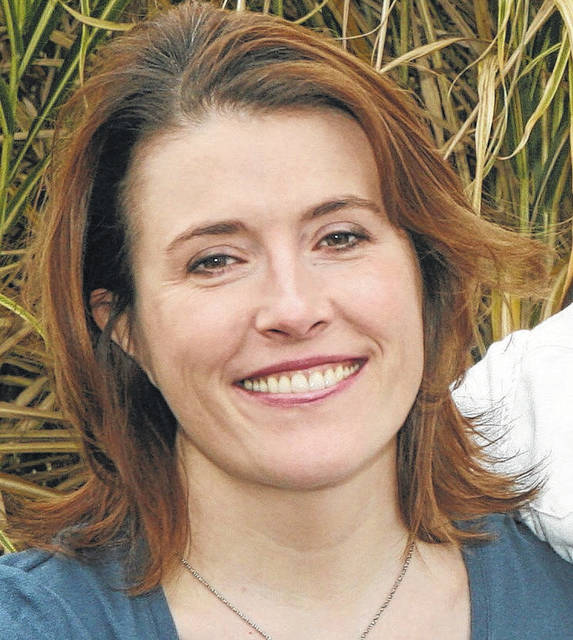
The Partnership for Drug Free Kids (2018) stated, “There is a strong link between mental and physical health issues (including stress) and the use of drugs and alcohol.” I interviewed Cynthia Mlinar, a mental health counselor for Shelby County Counseling Center, to find out her thoughts about stress. Mlinar has a M.S. in Mental Health from Wright State University, a M.Ed. in School Counseling from the University of Cincinnati, and a B.S. in Education from Miami University, and three years experience as a mental health counselor. Mlinar (2018) shared her perspective of stress that youth face, ways for youth to cope with stress, and ways to help youth avoid and/or not return to using drugs.
The Oxford Dictionary (2018) defines stress as, “A state of mental or emotional strain or tension resulting from adverse or demanding circumstances.” This definition could lead us to believe that, if you are experiencing stress, it is likely a difficult situation. Mlinar shared that youth problems may seem trivial to adults but “can seem like a huge unsolvable” problem to youth and said, “adults need to take (these) problems seriously.” As I’ve written before, this means we need to have our ears ready to listen when our children are ready to share their concerns. Mlinar stated, “Youth (may) need help with early identification of problems and stresses.”
We cannot deal with stress that we cannot identify, and Mlinar stated, “we have (about) 70,000 thoughts a day, (and) individuals can identify stress by becoming aware of their thoughts.” Mlinar encourages youth to be aware of “what are you telling yourself about the situation. Sometimes it is a matter of catching your thoughts.” She went on to explain that our body will show signs of stress including muscle tension, butterflies, and tightening of chest and stomach muscles. Awareness of these signs are important. Individuals can sometimes choose to react to stress by “isolating self, angry behaviors toward others, (and) destructive behaviors.”
Mlinar stated, “Managing stress and learning coping skills to manage stress in healthy ways is essential in order to refrain from drifting into a negative lifestyle.” When asked, what are some healthy ways for individuals to cope with stress, Mlinar listed the following strategies: Mindfulness, deep breathing, other breathing exercises, drawing pictures, writing in a journal, imagining a peaceful spot, talking to someone you trust, listening to music, being productive with work, (and) fun hobbies. Youth could easily take this list and apply most of these strategies without assistance; but with any practice, I’d further suggest it’s better to pick just a few strategies to practice until those strategies become comfortable.
Counseling can be a very positive strategy for dealing with stress. Consider being proactive and seek counseling if children are having a tough time dealing with stress or other concerns. Counseling can be very beneficial to youth because it can help youth “learn to cope with issues in their lives in healthy ways in order for them stay focused on reaching their goals” (Mlinar, 2018). Youth can tell their personal story in counseling; and according to Mlinar, counselors can help youth with “healthier ways to think, feel, and act.” Mlinar explained, “Counseling also involves behavior change, improving and maintaining relationships, decision-making, and allowing (the) client to achieve their potential as they perceive it.”
Although counseling is beneficial for anyone in need, Mlinar shared that counseling can help clients that have been addicted to drugs “regain hope and purpose in their life to give them the motivation and support for them to overcome a very difficult time in their life.”
Stress is something that everyone faces. The way we deal with stress can determine the outcomes in our life. As parents, we need to do our best to help our children identify stresses in their lives and assist them with strategies to cope with stress. Another option for helping your children is to seek counseling and support your child through the counseling process.
If you are in need of help or know someone in need of help for a drug addiction, below are some current resources in Shelby County that might be of assistance:
• Counseling for Wellness (Mental Health Outpatient) — 937-492-9355;
• FOA — Families of Addicts (Support- Locations Vary) — 937-307-5479;
• Family Resource Center of Northwest OH — 937-710-4616;
• Dr. Fred Sacks PhD & Associates, Dr. Sara Pleiman (Mental Health Outpatient) — 937-492-9900;
• SafeHaven, Inc. — HOPE Line 937-451-3232 or 855-276-4673, 937-658-6930;
• Samaritan Works (Other Recovery Services) — 937-492-9136, ext. 108;
• Shelby County Counseling Center (Mental Health/Addictions Outpatient, Other Recovery Services — sliding fee scale basis dependent on household income) — 937-492-8080;
• Sidney-Shelby Co. Health Dept. — 937-498-7249;
• Shelby House (men) or Miami House (women) at 937-332-0021
• 24/7 Tri-County Crisis Text Line, 800-351-7347;
• Wilson Memorial Hospital Behavioral Health Center (Other Recovery Services) — 937-498-5578.
This is one article in a series of articles written with the backing of the Shelby County Drug Task Force Education and Prevention Committee with the goal of increasing awareness and developing supports to prevent substance use.


